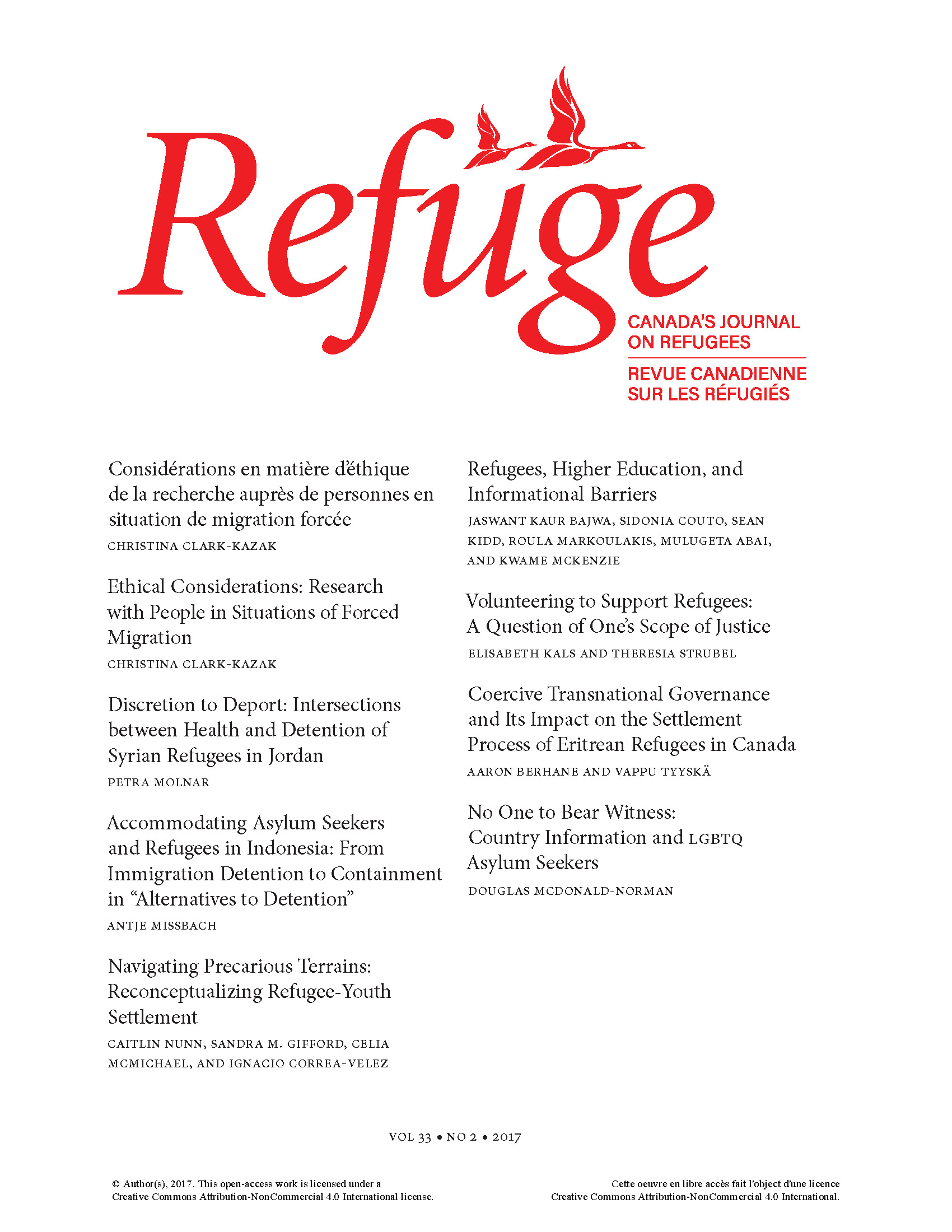Refugees, Higher Education, and Informational Barriers
DOI:
https://doi.org/10.7202/1043063arKeywords:
Canada, refugees, social inclusion, post-secondary education, higher education, torture survivors, political oppression, trauma, mental health, mobility, informational barriersAbstract
The purpose of the qualitative study was to explore the experiences, needs, barriers, and expectations of survivors of torture and/or war interested in entering post-secondary education in Canada. We conducted 38 interviews with participants from the Canadian Centre for Victims of Torture (CCVT), 10 interviews with CCVT staff, and 1 focus group with 3 participants, which followed a semi-structured interview guide, and were analyzed using a constant comparative method. Survivors of torture and/or war report experiencing informational barriers to navigating educational pathways, accessing professional supports, evaluating credentials, financing education, navigating immigration systems, using online resources, delaying their educational progress, and contributing to mental health distress.
Metrics
Downloads
Published
How to Cite
Issue
Section
License
Copyright (c) 2017 Jaswant Kaur Bajwa, Sidonia Couto, Sean Kidd, Roula Markoulakis, Mulugeta Abai, Kwame McKenzie

This work is licensed under a Creative Commons Attribution-NonCommercial 4.0 International License.
Refuge authors retain the copyright over their work, and license it to the general public under the Creative Commons Attribution-Non Commercial License International (CC BY-NC 4.0). This license allows for non-commercial use, reproduction and adaption of the material in any medium or format, with proper attribution. For general information on Creative Commons licences, visit the Creative Commons site. For the CC BY-NC 4.0 license, review the human readable summary.







